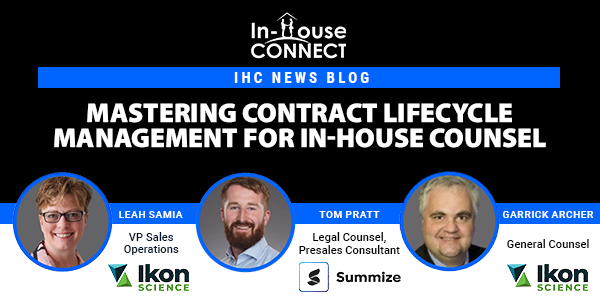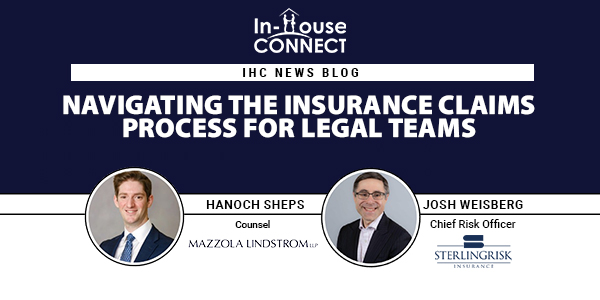In the recent webinar, they discussed Intellectual Property. In the world of intellectual property (IP) law, one of the most crucial distinctions in protecting IP assets is between specific vs. implied IP restrictions. Understanding these differences is essential for in-house counsel, as they directly impact how IP is managed, controlled, and safeguarded across various partnerships and agreements. This blog dives into the intricacies of both specific and implied IP restrictions and offers strategies for effectively managing them to protect your company’s valuable assets.
The Importance of Specific vs. Implied IP Restrictions
The key to effective IP management lies in recognizing when to use specific vs. implied IP restrictions. While specific restrictions are clear-cut and enforceable, implied restrictions leave room for ambiguity and risk. In-house counsel must understand these differences to craft robust agreements that mitigate potential liabilities and safeguard IP rights.
Understanding Specific IP Restrictions
Specific IP restrictions are explicitly outlined in contracts, leaving no room for interpretation. They clearly define how, when, and where IP can be used, ensuring that all parties understand their rights and obligations. These specific vs. implied IP restrictions play a vital role in protecting IP, particularly in complex environments involving distributors, resellers, and joint ventures.
Examples of Specific IP Restrictions
Geographic Limitations
Restrict IP use to certain regions to prevent unauthorized expansion that might erode market value.
Time-Bound Licenses
Specify how long the IP can be used, with clear timelines to ensure control reverts back to the owner after the agreement ends.
Scope of Use
Define allowable uses of the IP, such as whether it’s for resale, replication, or internal purposes, reducing ambiguity that could lead to misuse.
Revocation Clauses
Clearly state conditions under which IP licenses are terminated, ensuring quick recovery of control when necessary.
By ensuring specific vs. implied IP restrictions are addressed in these ways, companies can maintain stronger control over their assets and avoid legal complications.
Product Use Restrictions to Minimize Liability
Product use restrictions, like those found in software licensing and product labeling, are another example of how specific IP restrictions mitigate risk. By clearly defining how products should be used, companies can protect themselves from misuse, safety issues, and other liabilities. The contrast between specific vs. implied IP restrictions in these situations shows how specificity ensures enforceability and compliance.
Practical Applications of Product Use Restrictions
Labeling and Packaging
Include clear usage labels, such as warnings on off-road vehicles, to avoid improper use that could result in liability.
Software Licensing
Customize software licenses that restrict how products are accessed and modified, protecting them from unauthorized duplication or alteration.
Maintenance and Support Agreements
Define who is responsible for product defects, ensuring liability is shared appropriately and managed effectively.
These product use restrictions highlight the importance of specific vs. implied IP restrictions to ensure that the terms of use are clear, enforceable, and aligned with legal standards.
Implied IP Restrictions: The Risks
Unlike specific restrictions, implied IP restrictions stem from general practices, behavior, or precedents rather than from direct contractual language. Relying on specific vs. implied IP restrictions in agreements is risky, as implied restrictions are vague and often unenforceable.
The Dangers of Implied IP Restrictions
Ambiguity
Implied restrictions are open to interpretation, leading to misunderstandings and potential legal conflicts between parties.
Enforceability Issues
Without clear documentation, implied IP restrictions can be difficult to enforce in contentious situations.
Scope Creep
Over time, implied permissions may expand, allowing IP to be used in ways that were never intended, diluting its value and control.
The risks associated with specific vs. implied IP restrictions show why in-house counsel must emphasize clarity and precision in every agreement to avoid unintended consequences.
Best Practices for In-House Counsel
To avoid the pitfalls of implied restrictions and ensure IP assets are fully protected, in-house counsel should adopt the following best practices.
Draft Clear and Specific Agreements
Ensure that all IP rights and usage terms are explicitly stated, eliminating the need for implied restrictions.
Conduct Regular Audits
Periodically review agreements to ensure that IP clauses remain specific, clear, and aligned with current business goals.
Educate Stakeholders
Train stakeholders on the importance of adhering to specific IP restrictions and the risks associated with implied permissions.
By focusing on specific vs. implied IP restrictions, in-house counsel can help the company avoid unnecessary risks while maximizing the protection of its valuable IP assets.
The world of IP law requires a thorough understanding of specific vs. implied IP restrictions. While specific IP restrictions provide a solid foundation for protecting assets, implied restrictions present significant risks due to their lack of clarity and enforceability. In-house counsel should always aim to draft detailed, specific agreements and implement robust product use restrictions to effectively safeguard their company’s intellectual property.
Missed The Session? You can watch it now via IHC On-Demand!







